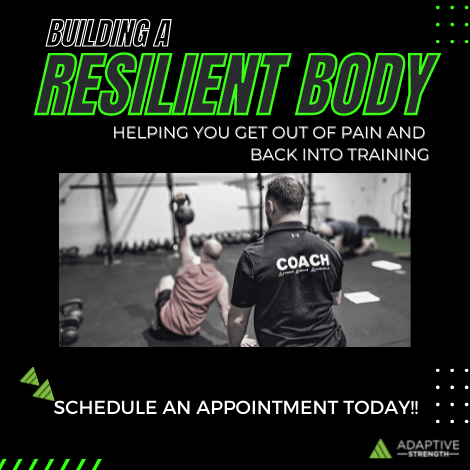Falls can be a significant concern for individuals living with disabilities, particularly for those with neurological or mobility impairments. For NDIS participants, reducing the risk of falls is essential for maintaining independence and overall health. Exercise Physiology, through personalized balance, strength, and coordination training, plays a crucial role in minimizing fall risks and preventing injuries. At Adaptive Strength in Booragoon, our Accredited Exercise Physiologists work closely with participants to create tailored programs that promote better balance, improved coordination, and enhanced physical stability.
The Importance of Fall Prevention for NDIS Participants
Falls are a leading cause of injury and hospital admissions among individuals with disabilities, especially those with conditions that affect balance or muscle function, such as multiple sclerosis, cerebral palsy, or stroke. Fall-related injuries can range from minor bruises to severe fractures or head trauma, significantly impacting a person’s quality of life and independence.
Exercise Physiology helps address these risks by focusing on improving the physical functions that contribute to better balance, strength, and coordination. By engaging in targeted training, NDIS participants can increase their stability, reduce their likelihood of falling, and build confidence in their ability to move safely.
How Exercise Physiology Prevents Falls
Accredited Exercise Physiologists (AEPs) are trained to assess each participant’s specific physical challenges and design exercise programs that target the areas most in need of improvement. These programs are individualized and can include a variety of exercises aimed at reducing fall risk.
1. Balance Training
Balance plays a critical role in preventing falls, especially for individuals with neurological conditions or musculoskeletal impairments. AEPs use various exercises to improve participants’ balance by strengthening the muscles that support stability and developing greater awareness of body positioning.
- Static Balance Exercises: These exercises focus on improving stability while standing still, helping participants gain control over their posture and reducing the risk of sudden loss of balance.
- Dynamic Balance Exercises: Dynamic exercises, such as walking on uneven surfaces or stepping over obstacles, improve balance during movement, which is vital for preventing falls while walking or navigating challenging environments.
2. Strength Training
Weak muscles, particularly in the lower body, contribute to instability and an increased risk of falls. Strength training helps build the muscle power necessary for maintaining balance and supporting the body during movement.
- Lower Body Strength: Exercises like squats, lunges, and leg lifts target the muscles in the legs, hips, and core, which are essential for balance and fall prevention.
- Core Strength: The core muscles play a pivotal role in stabilizing the body during movement. Strengthening the core can help NDIS participants maintain better control over their posture and movements.
3. Coordination and Proprioception
Coordination exercises are designed to improve the body’s ability to move smoothly and efficiently. These exercises focus on enhancing proprioception, which is the body’s ability to sense its position in space. Improved proprioception can help participants react more quickly and effectively to avoid falls.
- Coordination Drills: Activities such as catching and throwing a ball, stepping patterns, or navigating obstacle courses enhance hand-eye coordination and body awareness.
- Proprioceptive Exercises: These exercises improve the body’s awareness of joint positioning, which can reduce the risk of missteps or loss of balance during movement.
The Benefits of Balance and Fall Prevention Training
By engaging in regular balance, strength, and coordination training, NDIS participants can experience several key benefits that reduce their risk of falls and injuries:
- Increased Confidence: As participants become more stable and sure-footed, they gain confidence in their ability to move safely, which reduces fear of falling.
- Greater Independence: Improved balance and strength allow participants to navigate their environment more easily, enhancing their ability to perform daily tasks without assistance.
- Reduced Injury Risk: Strengthening muscles and improving coordination minimizes the likelihood of falls, thereby reducing the risk of injury.
Tailored Programs at Adaptive Strength
At Adaptive Strength in Booragoon, our Accredited Exercise Physiologists develop customized exercise programs designed to meet the unique needs of each NDIS participant. We start with a comprehensive assessment to understand each individual’s challenges and goals, then create a plan that targets balance, strength, and coordination to prevent falls and promote safety.
How to Access Exercise Physiology Services Through the NDIS
Exercise Physiology services are available to NDIS participants under the “Improved Health and Wellbeing” or “Improved Daily Living Skills” categories. Here’s how to get started:
- Arrange a NDIS Discovery Call with Adaptive Strength: During the call we will discuss your need for Exercise Physiology services and how they will help you achieve your goals.
- Choose Adaptive Strength as Your Provider: If you’re located in Booragoon or nearby, let your NDIS coordinator know you wish to work with our Accredited Exercise Physiologists.
- Book Your First Session: Contact Adaptive Strength to schedule your initial consultation, where we’ll create a tailored fall prevention program for you.
Building Strength, Balance, and Confidence
Exercise Physiology offers an effective way to prevent falls and reduce injury risk for NDIS participants. By focusing on balance, strength, and coordination, our tailored programs at Adaptive Strength help individuals lead safer, more independent lives. If you or a loved one is an NDIS participant, fall prevention and balance training can make a significant difference in maintaining physical health and independence.
Contact Adaptive Strength in Booragoon today to learn how our Accredited Exercise Physiologists can help you reduce your risk of falls and improve your overall stability and confidence!




